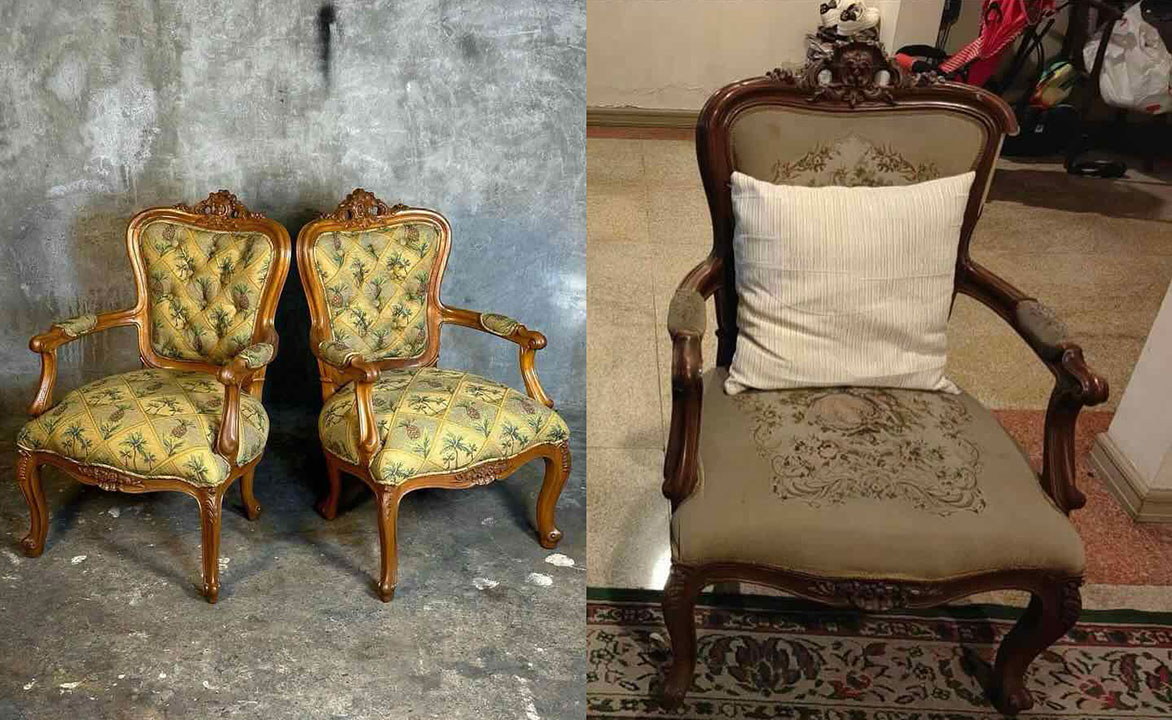From trash to treasure: Cura Furn makes upcycled furniture

By Edg Adrian A. Eva
CAVITE CITY-BASED Cura Furn is using upcycled pieces to make furniture to help businesses reduce their carbon footprint.
“I hope there would be more businesses… that would really push upcycled pieces,” Guiliana B. Anastacio, owner and creative head of Cura Furn, said in a video interview.
In Western countries like the US, the threat of “fast furniture” — mass-produced, relatively inexpensive, and easily discarded furniture — is on the rise, the New York Times reported.
The threat of fast furniture, similar to “fast fashion,” could increase waste.
Americans generate at least 12 million tons of furniture waste yearly, a 450% increase from 1960, most of it ending up in landfills, according to a 2018 report from the US Environmental Protection Agency.
The Philippines lacks data on furniture waste, but the country generated 16.63 million metric tons of solid waste in 2020, state auditors said in a 2023 report on the country’s Solid Waste Management Program.
It is expected to reach 19.76 million metric tons by 2030 and 24.5 million metric tons by 2045 despite the enactment of the Ecological Solid Waste Management Act of 2000.
In her fieldwork, Ms. Anastacio has seen the large amount of furniture regularly thrown away by businesses and residents, including pieces that are still in good condition.
“Some people would rather dispose of it rather than keep it,” she said. “I was surprised to know how many furniture pieces are being disposed of every day, every week, and every month.”
Through Cura Furn, Ms. Anastacio is advancing her sustainability advocacy by transforming discarded furniture into new creations.
One of the company’s major projects involved upcycling hundreds of swivel chairs and stools bought from closed restaurants and business establishments.
They transformed these pieces and sold them all at a reasonable price.
“Imagine 300 or 400 units that could fill a six-wheeler truck,” Ms. Anastacio said in Filipino. “These could have ended up in landfills, but we found homes for them.”
Cura Furn also provides upcycling services, including restoration and redesign, for furniture with a sentimental value.
Their services cover dining sets, buffet tables, hatch cabinets, stools, chairs, sofa sets and more.
But some consumers are reluctant to buy upcycled furniture because they can buy inexpensive pieces made by multinational companies.
“We always say that, for now, upcycling furniture may be a bit more expensive, but it’s more than the price,” she said. “It’s giving life to these discarded pieces.”
Ms. Anastacio hopes that more Filipino homes and businesses would adopt upcycling practices, which would help lower the cost of upcycled products and make them more accessible to more consumers.
This would also encourage major furniture companies to shift away from mass production and adopt upcycling, she added.



